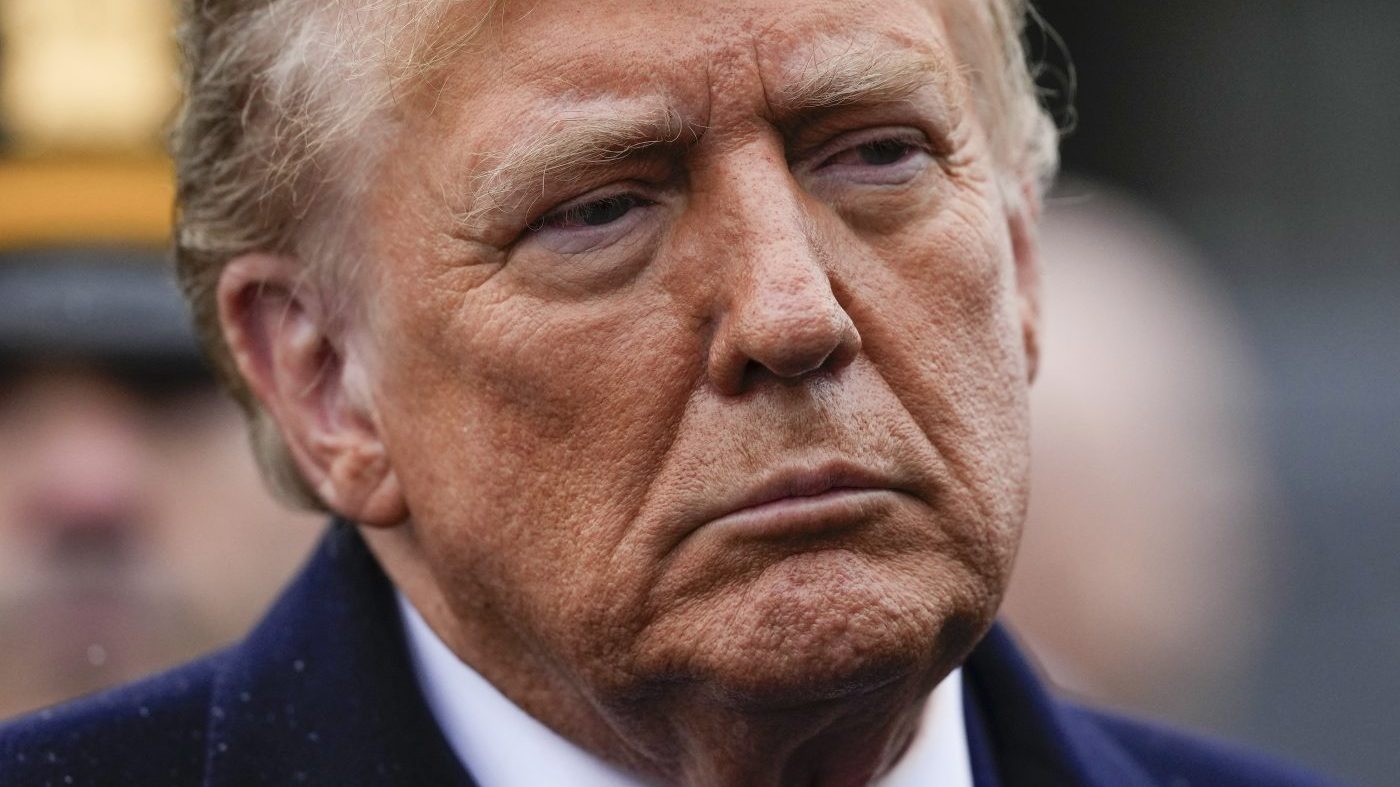A recent Marquette Law School poll reveals a nuanced American perspective on former President Donald Trump’s legal controversies and the Supreme Court’s role in these matters.
The poll shows a slim majority, 56%, supports the Supreme Court’s decision to maintain Trump’s presence on Colorado’s presidential ballot despite allegations of his involvement in the Capitol attack on January 6, 2021.
This decision countered arguments that Trump had breached the “insurrectionist ban” under the 14th Amendment. However, 40% disagreed with keeping Trump on the ballot.
Most Americans reject Trump’s presidential immunity claim (Credits: Axios)
Regarding granting immunity to former presidents from prosecution, 62% of those surveyed rejected the idea, with only 20% in favor. This sentiment remains consistent as the Supreme Court gears up to deliberate on whether Trump can claim immunity from charges related to attempting to overturn the 2020 election results, to which he has pleaded not guilty.
The poll also experimented by dividing respondents, questioning half on immunity for “former presidents” and the other half specifically about Trump.
Support for immunity notably increased by eight percentage points when Trump’s name was explicitly mentioned, suggesting a partisan divide among Republicans. Charles Franklin, the poll’s director, highlighted this shift among Republicans who favor immunity for Trump specifically over general support for all former presidents.
Supreme Court to Weigh Trump Immunity (Credits: Forbes)
This intriguing finding comes as the Supreme Court prepares to tackle Trump’s immunity case on April 25, amid declining public confidence in the court following contentious rulings and ethical controversies.
Despite these challenges, approval of the Supreme Court’s performance has seen a slight uptick to 47%, although still below its standing three years ago.
The poll’s methodology involved interviews with 1,000 adults nationwide, with a margin of error of plus or minus four percentage points. Conducted from March 18-28, this survey sheds light on Americans’ complex views regarding the intersection of law, politics, and the judiciary’s role in contemporary issues.
